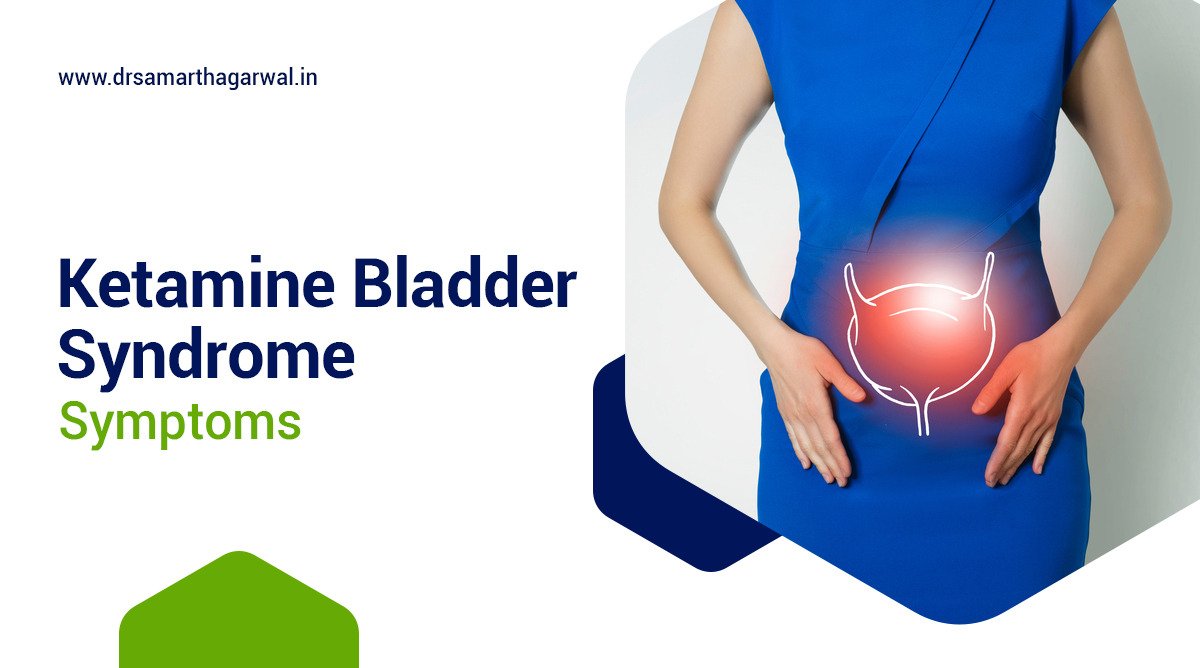Ketamine, a dissociative anesthetic medication, has been increasingly used recreationally, leading to the development of ketamine bladder syndrome (KBS). KBS is a condition characterized by chronic pelvic pain, urinary frequency, and painful urination associated with ketamine abuse.
The symptoms of KBS include urinary frequency, urgency, and painful urination, as well as pelvic pain, incontinence, and recurring urinary tract infections. Research has shown that ketamine abuse can lead to significant damage to the bladder and urinary tract, resulting in chronic and debilitating symptoms.
According to a 2011 study published in the Journal of Clinical Psychology, individuals using significant amounts of ketamine developed symptoms including a small painful bladder, ureteric obstruction, papillary necrosis, and hepatic damage.
The causes of KBS are multifaceted, including the dose and duration of ketamine use, as well as individual susceptibility. Treatment options for KBS are limited, but may include medications to manage symptoms, behavioral therapies, and alternative approaches such as chondroitin sulfate therapy.
You might also like: Treatment for Overactive Bladder in Males
What Are the Symptoms of Ketamine Bladder?
Ketamine bladder symptoms include painful urination, urinary frequency, and incontinence, similar to those experienced by patients with interstitial cystitis, resulting from chronic ketamine abuse and use of ketamine.
Symptoms of Ketamine Bladder:
| Symptoms | Description |
| Painful Urination | A common symptom of ketamine bladder, characterized by intense burning sensations during urination. |
| Urinary Frequency | Frequent urge to urinate, often accompanied by a sense of urgency. |
| Incontinence | Loss of bladder control, resulting in involuntary urine leakage. |
| Hematuria | Presence of blood in the urine, a sign of severe bladder damage. |
| Recurrent UTIs | Chronic urinary tract infections, a direct result of ketamine-induced bladder damage. |
The Devastating Consequences of Ketamine Abuse
The use of ketamine can lead to significant damage to the bladder and urinary tract, resulting in a range of debilitating symptoms. Chronic ketamine abuse can cause:
- Bladder ulcers and inflammation
- Scarring of the bladder lining
- Reduced bladder capacity
- Increased risk of bladder cancer
The Importance of Early Intervention
It is essential to seek medical attention if you or someone you know is experiencing symptoms of ketamine bladder. Early intervention can help prevent long-term damage and improve treatment outcomes.
You might also like: BPH Benign prostatic hyperplasia symptoms
Can You Have Bladder Pain from Ket?
Yes, you can have bladder pain from ketamine use.
Ketamine, a drug known for its dissociative and paralytic effects, can cause serious and frequently irreversible damage to the urinary tract, including the bladder. This damage can result in chronic bladder pain and psychological problems.
Is There a Connection Between the Amount of Ketamine Used and The Severity of Kbs Symptoms?
Research suggests a direct correlation exists between the frequency of ketamine use and the severity of ketamine bladder syndrome (KBS) symptoms. Higher doses of ketamine lead to more severe lower urinary tract symptoms among ketamine users. The effect of long-term ketamine exposure significantly exacerbates the condition, known as ketamine cystitis, damaging the bladder wall and resulting in bladder dysfunction.
You might also like: Overactive Bladder treatment options – OAB treatment
Ketamine abusers, those engaging in recreational ketamine use, often report a variety of urinary symptoms. These range from discomfort to severe pain, indicating a deteriorated bladder wall. Chronic pain becomes a companion of long-term ketamine abuse, necessitating meticulous pain management strategies. Consequently, cessation of ketamine use emerges as an effective treatment strategy, allowing for the reduction of symptoms and the possibility of bladder recovery.
The association between ketamine and urinary tract dysfunction encompasses both the lower and upper urinary tracts. Damage extends beyond the bladder, affecting the upper urinary tract and leading to contracted bladder and possibly to more severe outcomes. Surveys for ketamine abuse demonstrate a clear relation to lower urinary tract damage, confirming the detrimental impact of recreational use of ketamine on urological health.
Individuals subject to ketamine-associated urinary tract dysfunction often undergo procedures such as bladder biopsy and injection combined with bladder hydrodistention, aiming to assess and alleviate the condition’s severity.
You might also like: What Does a Urologist Do for Prostate Cancer?
Chronic ketamine addiction complicates pain management and requires comprehensive strategies, including bladder function rehabilitative efforts post-ketamine cessation. Thus, the link between the amount of ketamine used and the severity of KBS symptoms underscores the critical need for awareness and intervention in cases of ketamine abuse.
Can KBS symptoms come and go, or are they always present?
KBS symptoms can come and go, as they are often transient in nature. In cases of epilepsy, for example, KBS symptoms may occur only during or after seizures. However, in other cases, symptoms may be persistent and always present. The severity and duration of KBS symptoms vary widely depending on the underlying cause and individual circumstances.
Do people with KBS experience difficulty emptying their bladder completely?
Yes, individuals with Ketamine Bladder Syndrome (KBS) often experience difficulty emptying their bladder completely. Recreational ketamine users frequently report this issue as a significant consequence of their ketamine consumption. The effect of ketamine on the bladder leads to ketamine-related bladder problems, characteristic of individuals enduring long-term ketamine use.
You might also like: Treatment for Overactive Bladder in Males
This substance damages the bladder epithelial barrier directly, resulting in painful bladder conditions and pronounced inflammation of the bladder. These physiological changes contribute materially to the struggle of fully emptying the bladder among those suffering from KBS. Therefore, the painful and inflamed state of the bladder, exacerbated by the damage to the epithelial barrier from ketamine consumption, substantiates the difficulties experienced during urination, affirming the serious implications of long-term recreational ketamine use on bladder function.
Can KBS cause blood in the urine?
KBS itself does not directly cause blood in the urine. However, underlying infections or conditions related to KBS, such as urinary tract infections, may lead to blood in the urine. If blood is noticed in urine or stool, it’s essential to inform a healthcare provider to investigate further and rule out any underlying infections or conditions.
You might also like: Neurogenic Bladder Overactive Bladder Causes, Symptoms, Management
How long after using ketamine do symptoms of KBS typically appear?
KBS (ketamine bladder syndrome) itself does not directly cause blood in the urine. However, underlying infections or conditions related to KBS, such as urinary tract infections, may lead to blood in the urine. If blood is noticed in urine or stool, it’s essential to inform a healthcare provider to investigate further and rule out any underlying infections or conditions.
You might also like: Common Symptoms of Urinary Problems
Are there any long-term consequences of KBS?
Yes, some KBS features can persist indefinitely, while others may gradually resolve several years. The long-term consequences of KBS can include memory loss and behavioral problems, and may have undesirable side effects not managed properly.
Is there a cure for KBS, or is it a lifelong condition?
There is no specific treatment or cure for KBS, and the clinical course will vary patient to patient. Timely diagnosis and treatment can help manage the condition, but KBS is generally considered a lifelong condition that requires ongoing management and care.
How is KBS diagnosed?
KBS diagnosis is primarily clinical, based on a thorough evaluation of symptoms such as hyperorality, hypermetamorphosis, hypersexuality, bulimia, placidity, visual agnosia, and amnesia. Your urologist will assess these symptoms to diagnose KBS, and may also consider medical history and rule out other conditions through differential diagnosis.
Are there any specific treatments for KBS?
There is no specific treatment for ketamine bladder syndrome, and management can be challenging. However, pharmacotherapy has been shown to be effective in combating the condition. Treatment approaches may include pharmacological interventions, such as carbamezine, and other medications to manage symptoms.

Consult with Dr. Samarth Agarwal, top urologist from Siliguri for all your urology issues.




